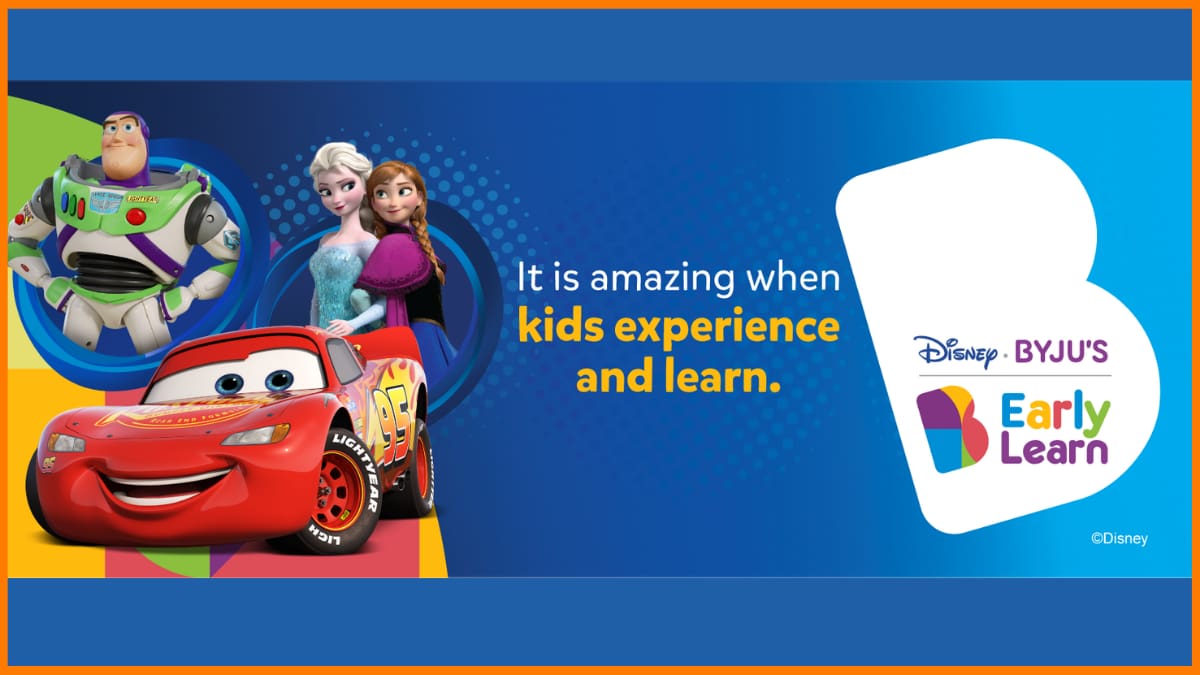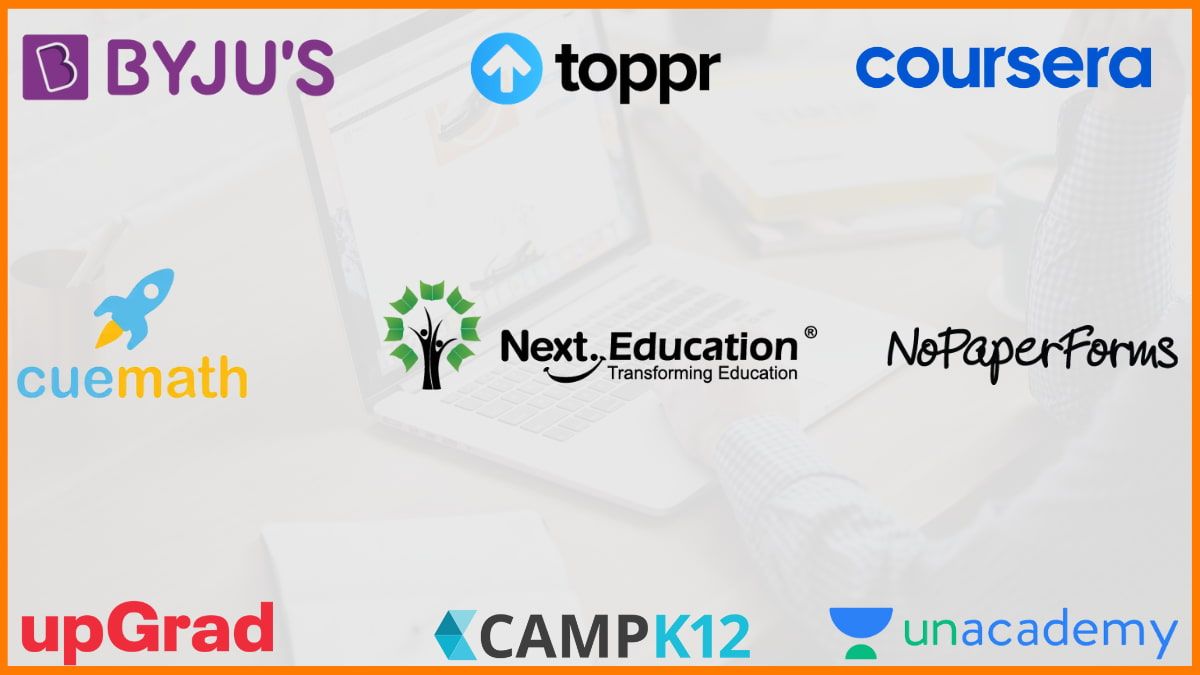Company Profile is an initiative by StartupTalky to publish verified information on different startups and organizations. The content in this post has been approved by Notebook Company.
Internet is steadily revolutionizing the Indian education system. Gone are the days when students used to pass hours in the library searching for that one reference book. Now every topic and every subject is available online. Furthermore, with more and more Edtech companies coming up, both the teaching and learning process has become easier.
Many startups have come up in India with innovative ideas in the Edtech sector. Notebook is one such Edtech Startup based in Kolkata. Notebook company’s vision is to enable access to high-quality education for every child. It strives to establish a benchmark in educational content quality for the Indian school curriculum.
Notebook – Company Highlights
| Startup Name | Notebook |
|---|---|
| Headquarters | Kolkata |
| Founders | Achin Bhattacharya, Subhayu Roy, and Abhishek Dutta |
| Industry | EdTech |
| Founded | 2018 |
| Website | notebook.school |
Notebook – About
Notebook – Industry Details
Notebook – Founders and Team
Notebook – Startup Story
Notebook – Name and Logo
Notebook – Business and Revenue Model
Notebook – Funding
Notebook – Growth
Notebook – Challenges
Notebook – Competitors
Notebook – Advisors and Mentors
Notebook – Work Culture
Notebook – Awards
Notebook – Future Plans
Notebook – About
Notebook is an edtech startup based out of Kolkata. It provides educational audio-visual content based on every topic in the school curriculum, as a teaching aid.
Notebook is guided by the following core beliefs:
- Every child is talented and equally capable.
- Society will improve as a whole if only every child can be provided with access to high-quality education.
- At the end of the day, all learning is self-learning. If content can inspire curiosity, it would have served its purpose.
- Creativity inspires more creativity.
Beyond its commercial presence, Notebook exists to empower positive social change. Its vernacular feature allows children to learn their syllabus in their regional languages. The videos include instructor-led components as well as graphic visualization elements to reinforce storytelling. Hand-drawn illustrations, soothing music, and well-thought-out creative design augment the Storytelling and enhance understanding and retention of topics.
Notebook company is also engaged in dialogue with the Education departments of various countries, to digitize education in these countries. There are on-going discussions with the governments in South Asia and GCC regions, and some other countries where the government is trying to serve different issues in their traditional education system through the distribution of digital content.
Products
The product is a self-learning environment. In its current shape and form, it provides videos and textual content that explain topics from school syllabi. Notebook has started with CBSE and will be adding more boards soon. It is available on the web, Android app, and iOS app.
Through its products Notebook company aims to bring out the curiosity among students and engage them. As in class holding the students’ attention for a long time is a challenge for the teachers, Notebook has attempted to create the audio-visuals in such a way that seems interesting to the students. Currently the course available in Notebook is English for CBSE 8th, 9th and 10th standard. Study Notes and Solved Questions are also included in the course.
The platform also employs Machine Learning to offer personalized learning pathways to the students. The back end will keep learning through usage patterns and use them in the future to recommend content to students based on individual learning needs.
Technology Used
Notebook operates on the Google Cloud and delivers video streams through the same pathway as YouTube. It has implemented best-in-class DRM to protect against piracy.
Notebook – Industry Details
According to a report by Google and KPMG, the online education industry in India will grow from $247Million to $1.96 billion by 2021, There are 260 million school students in India as per U-DISE reports. This provides a massive opportunity to deliver a high-quality product.
According to Cisco, just as with the advent of mobile phone connectivity has seen exponential growth from 3% to almost 100%, likewise, the smartphone will increase the computer penetration from 12-13% to 60-70%. As such, with Smartphone now being affordable and available to everyone, online education is no longer dependent on the computer.
Notebook – Founders and Team
Achin Bhattacharyya, Subhayu Roy and Abhishek Dutta are the co-founders of Notebook.
Achin Bhattacharyya

Achin Bhattacharyya worked as a Chartered Accountant prior to the inception of Notebook. He worked with some of the best consultancy firms in India and abroad. His last stint was with Deloitte as a Director, prior to which he worked with KPMG, PwC, GE, and others, both in India and overseas. Achin takes care of overall strategy, content design, and finance at Notebook. Achin Bhattacharyya is the Co-founder and CEO of the company. An avid reader and passionate traveller himself, Achin has a keen interest in Economics, History, and Literature and Philosophy. He is a regular speaker at various forums and also contributes articles to numerous publications. He is also on the board of some of the most renowned corporates and contributes significantly to brand strategies.
Subhayu Roy

Subhayu did his Engineering from RVCE, Bangalore, and his MBA from TAPMI, Manipal. He had worked with L&T in Construction, and then with OnMobile in Africa for 4 years setting up a mobile content business. He headed Perform Group (UK)’s South Asia business before leaving and starting up Notebook. He also worked previously with VerSe Innovation, the parent company of Josh and Dailyhunt. Subhayu looks after Marketing of the edtech startup, Technology, and Product at Notebook.
Abhishek Dutta

Abhishek is a qualified Chartered Accountant with 16 years of working experience in the corporate world. He has led large teams (400+) for delivering finance and accounting services to Fortune 500 companies.
The Co-Founders – Subhayu and Abhishek, bring valuable additions in terms of expertise and experience to Notebook.
The leadership at Notebook company believes that universal access to high-quality education is the only sustainable way to achieve social upliftment. To this end, Notebook has been proactively partnering with Government departments and Non-Government Organisations (NGOs) across the globe. Currently, there are 50+ members of the startup team.
Notebook – Startup Story
It was over the course of a discussion that we realized that an ‘Over The Top (OTT)’ approach in education was possible.
In March 2017, Achin was visiting Subhayu in Delhi. They were having a general discussion on the various social evils present in society and how these evils can be eradicated through education. Subhayu was working in the Sports content space and was witnessing the OTT phenomenon. Soon the idea stuck in their mind that they can make education easily available through the OTT approach.
After this, Subhayu and Achin spent a year traveling across India and abroad – visiting students, teachers, universities, academicians across various places and different strata of the society to identify the pain points.
In March 2018, they started developing content, which they kept sharing with teachers and students at every step for feedback. They gave leaflets to schools, actively courting criticism!
Both Subhayu and I have spent years in the Corporate world. Managing time effectively is second nature to us. We spend time and effort in finding the right people. Once we do, we empower them, trust them and watch as they take the lead on things. – Achin Bhattacharyya, CEO of Notebook

Notebook – Name and Logo
When we started out, we had a few names on the board to choose from. Given that we needed to be attractive to school students, we were thinking of names that were fun, tech-oriented, used intelligent wordplay. – Achin Bhattacharyya, CEO of Notebook
Finally, Achin and Shubhayu came up with the name ‘Notebook’. It was simple, direct and known. Even in logo and colours, the company kept things the same way – simple and direct. The choice of the Golden yellow colour stood for excellence and it is also believed to be Goddess Saraswati’s colour.

Notebook – Business and Revenue Model
Notebook is a subscription-based service operating on a Freemium model. It is India’s first after-school digital learning portal. Schools get access to concise and engaging high-quality audio-visual teaching aids for classrooms, and students get individual personalised access to the same content on their personal devices so that they can study at their convenience. Since its commercial launch in September 2019, the Notebook app has been downloaded and used by more than 90,000 students from across India, and several schools have already started implementing Notebook videos in their classrooms.
The company believes that its content quality is its greatest marketing asset. As such Notebook is offering part of the content for free.
According to Achin and Suvayu, Notebook’s USP is the content and pricing strategy. The content design has been consciously done in a way that engages the student.
We have devised an augmented storytelling technique that invites the student to imagine along with the video, and this shows great results in understanding and retention. – Achin Bhattacharyya, CEO of Notebook
Notebook is available at a price of Rs 1,999 for all subjects for a month and Rs 9,999 for an annual subscription with unlimited access.
Achin and Suvayu felt the necessity for the product to be made affordable to the average Indian parent, and this is what they have modeled into Notebook’s subscription.
Notebook – Funding
Notebook is currently bootstrapped startup. It has not received any funding yet.
Notebook – Growth
Notebook has served over 2.3 million users as of November 2021. It had over 300,000 users before the lockdown and increased to 2.32 million in 2021.
Notebook – Challenges
The greatest challenge faced was establishing a balance between content and pedagogy. The content had to be comprehensive and yet crisp. The pedagogy had to be engaging without distracting. So there were quite a few balances to strike.
Creating high-quality content ensuring that the students find it engaging and also which is easily memorable was a challenging task. However, Achin and Subhayu actively discussed the issues, expectations, and requirements with the teachers and students across the country. On the basis of the feedback received, Notebook was able to come up with an easily comprehensible and memorable design for the content.
Support from family and friends is the highest asset during challenging times.
Both of us have been fortunate that our family and friends have believed in us right from the get-go. Every person we told about our decision felt that we were doing the right thing. It has been immensely encouraging to have so many people put their faith in us. – – Achin Bhattacharyya, CEO of Notebook
Notebook – Competitors
There are quite a few companies that are registered as Ed-tech with the ROC. However, very few are known and regularly used by students. Byju’s has done an outstanding job in Maths and Science, and in building a self-learning habit. Others like Meritnation and Toppr have been around for a while, and have their own content philosophies. They believe that the true competition is with rated content, pirated videos, and other distractions that students today has access to.

Notebook – Advisors and Mentors
Notebook is growing under the active mentorship of –
- Mr. Ashok Ganguly – Former Chairman, CBSE for 8 years.
- Dr. Mrs. Minakhi Das – Former Chief Controller of Exams, Odisha Board
Notebook – Work Culture
I believe that the best way to treat any employee is to not treat him or her as an employee. – Achin Bhattacharyya, CEO of Notebook
The Notebook team is like a close-knit family where the team members continuously help and support each other. Notebook has provided accommodation facility to its team members who are from outside Kolkata. This is a caring gesture and it has helped to improve the work efficiency of the team members.
Notebook – Awards
Notebook bagged the awards for the Best Website and the Best App at the World Digital Marketing Congress – two awards in 2020 at The Taj Lands’ End, Mumbai.
On winning the awards, Achin Bhattacharyya, CEO, and Founder of Notebook said, “From its very inception, Notebook has been driven by a vision to help students learn. The content design, product development, research, and technology have all stemmed from this core value. It is immensely encouraging for the whole team, and me personally, to be recognised by such an eminent forum for our efforts. India has seen a mushrooming of Edtech products in recent times, and many of them believe in aggressive overselling. We, however, have always believed in the quality of our content and the intuitive nature of our product and this has been such a wonderful validation of that approach. Our App and Website are both embodiments of the essential values that Notebook embodies – respect for every individual, inclusion in all our actions and immense pride in the work we do. I am humbled by this recognition, and attribute it to two things – our ability to precisely and accurately assess the students’ learning needs, and the tireless effort from our entire team. Accolades like this provide us with greater impetus to work harder.”
Notebook – Future Plans
It is just the beginning for Notebook company, and Achin and Subhayu are planning to make things big. Notebook’s future plans include-
- Creating content in 10 vernacular languages apart from English.
- To provide educational aids for dyslexic and visually challenged students.
- To bridge the gap in the school education system in different subjects and different boards.
FAQs
What is Notebook?
Notebook is a digital learning platform that combines video and text content to deliver learning materials according to Board curricula.
Who is the founder of Notebook startup?
Achin Bhattacharyya, Subhayu Roy, and Abhishek Dutta are the co-founders of Notebook.
When was Notebook founded?
Notebook, the Kolkata-based startup was founded in 2018.
Who is the CEO of Notebook?
Achin Bhattacharyya is the Co-founder and CEO of Notebook company.
Who are the competitors of Notebook?
Top competitors of Notebook startup are:
- Byju’s
- Toppr
- Meritnation






























